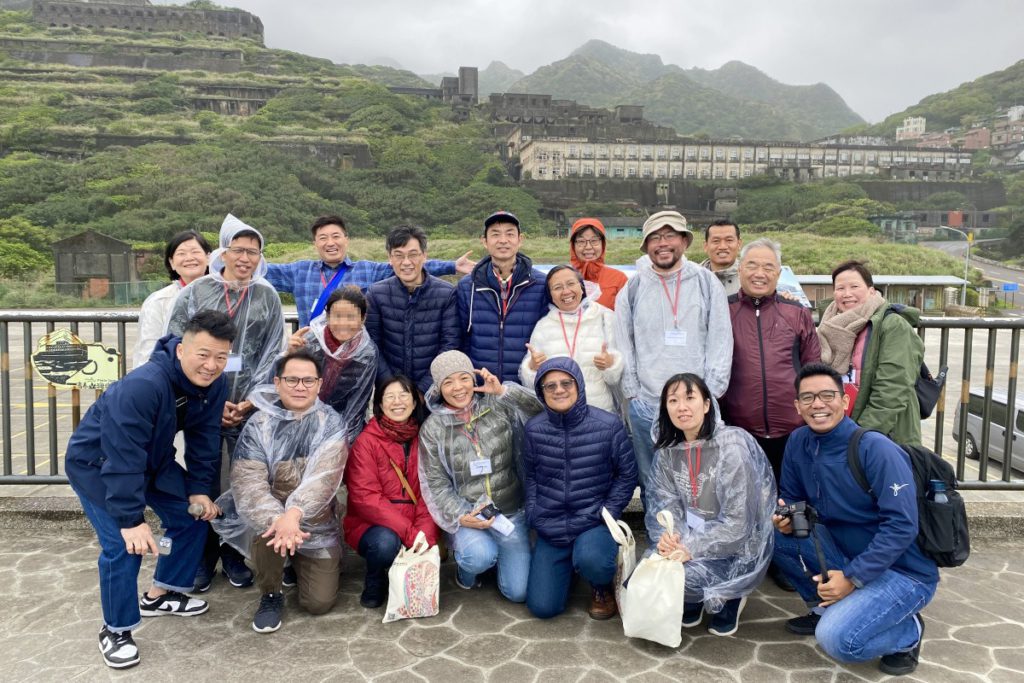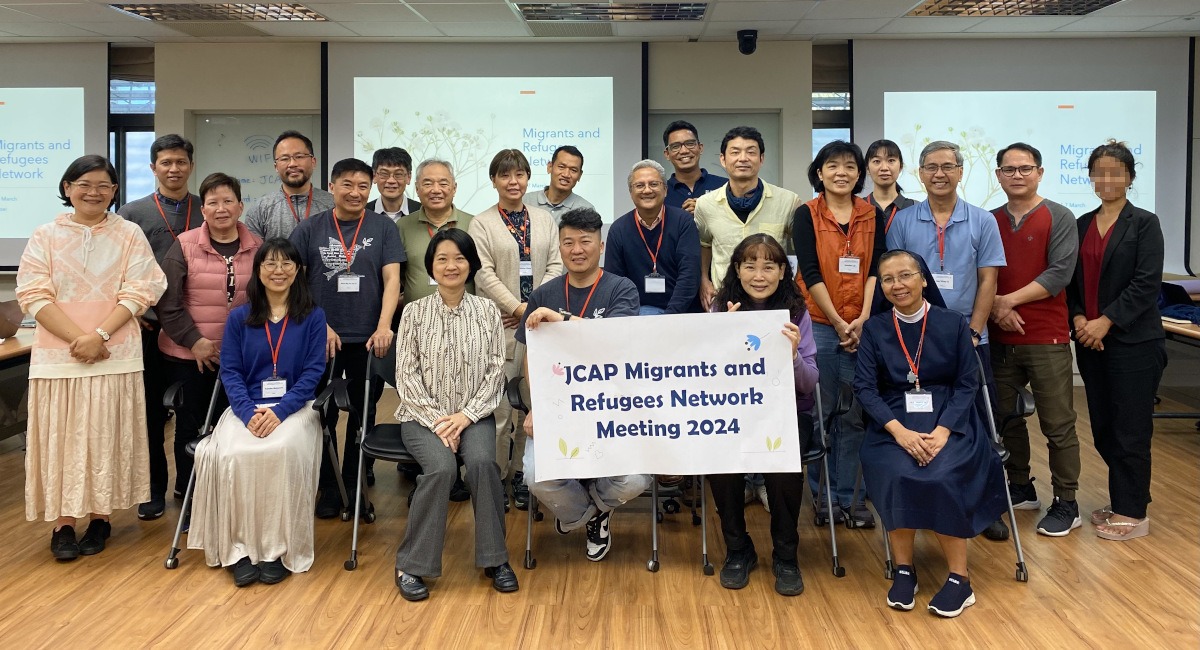The Migrants and Refugees Network of the Jesuit Conference of Asia Pacific (JCAP) is made up of active and dedicated people working in this Jesuit ministry. Hosted at the Fu Jen Catholic University in Taiwan from 4 to 6 March, representatives of the network from all over Asia Pacific gathered to connect and collaborate, as well as discuss tough issues facing migrants and refugees in this part of the world.
JCAP President Fr Primitivo Viray Jr SJ addressed the group on the first day with a succinct but truly consoling message. Recalling his background in economics, he said that the term GDP came to mind. “Not Gross Domestic Product,” clarified Fr Viray, “but gratitude, desire for collaboration and friendship, and prayer—asking guidance from the Holy Spirit for the work that has been entrusted to us”. The Provincial of the Chinese Province, Fr Stephen Tong SJ, was also there to welcome the group as this was the first conference meeting hosted by the province. Fr Tong reminded all of General Congregation 36, where the perspectives of discernment, collaboration, and networking were paramount. “That is why we are here,” said Fr Tong. He also pointed out that Ignatian Spirituality is a rich source of consolation for the work. “There is a great temptation for loneliness because you are on the frontlines, seeking to address injustice,” he said. “Sometimes, you cannot see the change. But here you may share resources and support, bringing a deeper sense of unity so that you don’t feel so lonely in your efforts.”
Each representative had the opportunity to share updates from their respective countries, showing the depth and breadth of the migrant and refugee situation from all over the region—from the refugee centres in Japan to the shelters for migrant workers in South Korea to the current projects of Jesuit Mission Australia and the refugee camps in Thailand. There was special focus on Myanmar, a country in turmoil with over 2.7 million displaced people. Jesuit Refugee Service (JRS) in Asia Pacific continues to work in Thailand and Singapore, from camps to urban areas, focusing on education, psychosocial support, advocacy, and resettlement.
A special guest from Fu Jen Catholic University, Associate Professor Liu Hsiang Lan, presented a backgrounder on Taiwan’s response to immigrants, which is both progressive and inclusive. While most new immigrants in Taiwan are foreign spouses of Taiwanese nationals, there is also an influx of industrial migrant workers and care workers. The Taiwanese government seeks to address the specific needs of new immigrants, covering cultural differences, language barriers, family conflicts like divorce, employment and work concerns, and the children from transnational unions. There are service systems in place that provides family care, training, education, employment opportunities, and reporting for domestic violence.
Other guests who participated online were from the JCAP Social Apostolate team: Julie Edwards, who emphasised the importance of capacity building in the social apostolate as part of its reinvigoration; Fr Gabby Lamug-Nañawa SJ, who shared on the JCAP flagship project Caring for Communities and Creation as well as the impact of the climate crisis on forced migration; and Fr Fernando Aspiroz SJ, who brought up the importance of education for migrant workers and other people on the move.

With so much input on the first day, the second day began with a more contemplative aspect. Before time for individual prayer and reflection, Fr Viray spoke to the group about “being before doing”. This resonated with many participants, who realised that pausing to take stock is an essential part of the work.
One of the main goals of the meeting was outlined by Fr Jun Nakai SJ, who is responsible for coordinating the network, that is, to finalise the MRN Action Plan 2023-2027. Thus, the entire group worked on fine-tuning the action points for each sub-team, which were incorporated into the five-year plan. Finally, an official logo for JCAP MRN was also chosen, designed by Fr Pieter Dolle SJ from Indonesia.
On the last day of the meeting, the group visited the coastal area of Keelung where many migrant fishermen work. Rerum Novarum Center, a Jesuit social service institution based in Taipei, works with these migrant fishermen who struggle with heavy labour and tough conditions. Jason Lee, one of the centre’s most dedicated staff members, has worked with the migrant fishermen for several years and explained the difficulty of their situation. Lee, a Christian but non-Catholic, approaches the fishermen not as charity cases but with the Ignatian value of cura personalis. The group was also very warmly received at the Taipei City Shilin Public Assembly Hall, which is used mainly for new immigrants. Testimonies from three immigrants, two from the Philippines and one from Thailand, demonstrated how the immigrant experience can be positive with the support of the government and the good citizens of Taiwan. Finally, the group visited the headquarters of Rerum Novarum Center situated in the Da’an District of Taipei. There, two migrant workers—one from Indonesia and one from the Philippines—shared their difficult experiences and how Rerum Novarum is able to help them. From legal to psychosocial support, these migrant workers find the strength to continue.
After three days of work and companionship, the network strives to help not only migrants and refugees, but has also become a harbour of sorts for its members, providing not only opportunities for collaboration but friendship and consolation.

